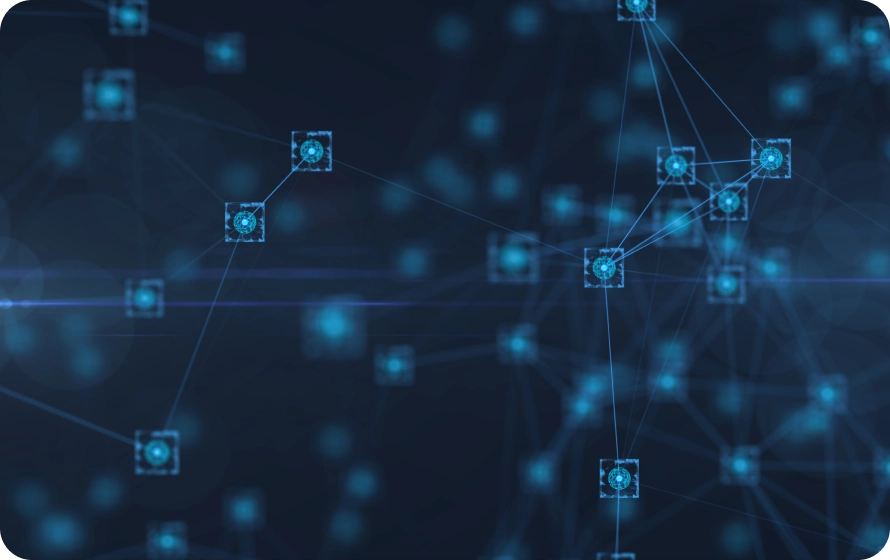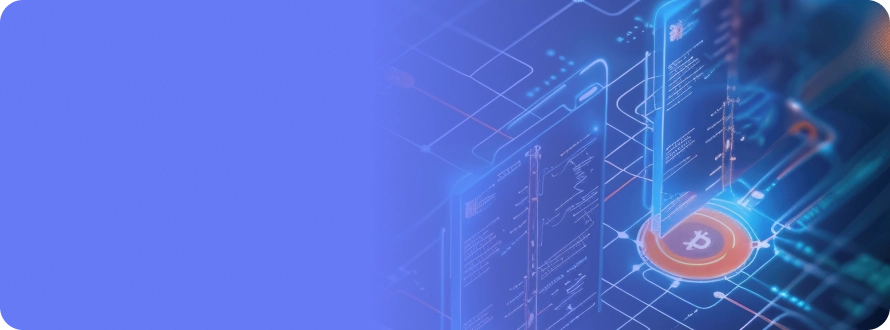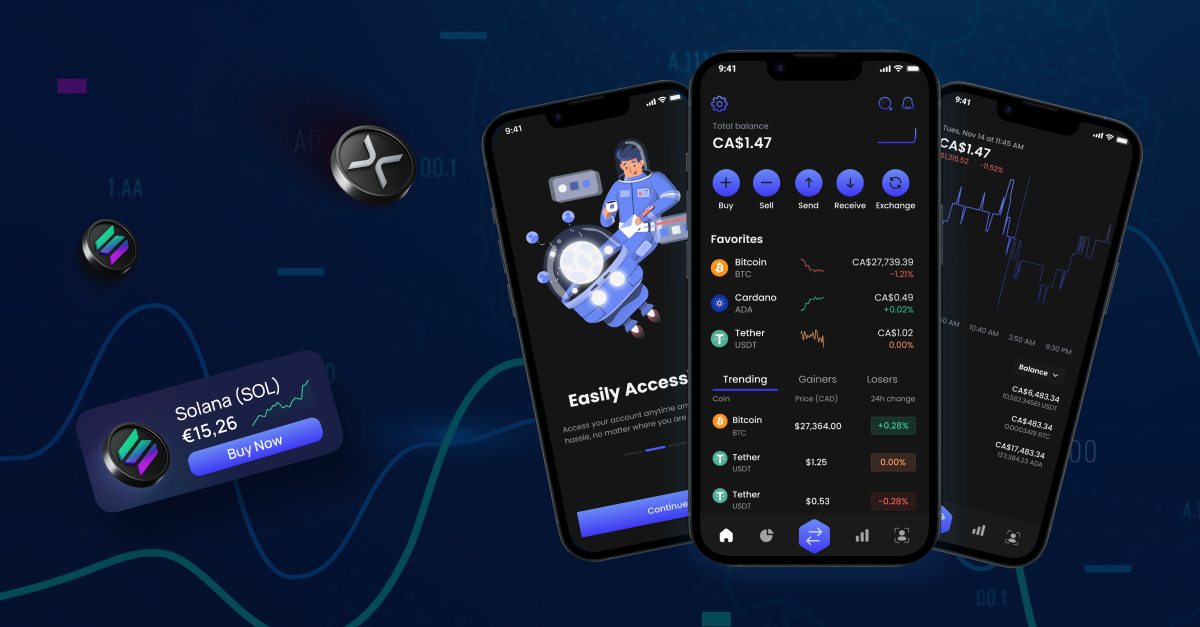Decentralized Autonomous Organizations (DAOs) have emerged as a revolutionary concept in the blockchain and cryptocurrency sphere. Through smart contracts and blockchain, DAOs enable decentralized decision-making and governance, eliminating the need for traditional centralized authorities. In this article, we delve into the technical aspects of building a DAO, providing insights into its components, types, development tools, and the steps involved in creating one.
 $7.4 billion
$7.4 billion
The global blockchain market size was estimated at approximately $7.4 billion in 2022.
 $101.30 million
$101.30 million
In 2023, the global DAO-as-a-Service market size was estimated at $101.30 million.
 5,000
5,000
In 2022, the number of known active DAOs was valued at nearly 5,000 and $9.7. billion.
What is a DAO?
A Decentralized Autonomous Organization (DAO) is an organization represented by rules encoded as a computer program that is transparent, controlled by organization members, and not influenced by a central government. DAOs are built on blockchain technology, ensuring security, transparency, and immutability. The core idea is to provide a decentralized and trustless environment where stakeholders can participate in decision-making processes without intermediaries.

DAOs utilize smart contracts, which are self-executing contracts with the terms of the agreement directly written into code. These smart contracts define the rules and execute agreed-upon decisions autonomously. This setup allows for automating many organizational processes, from governance to resource allocation.
Components of a DAO Platform
Creating a Decentralized Autonomous Organization involves integrating several critical components, each serving a unique function to ensure the DAO operates effectively and transparently.
Smart Contracts
Smart contracts are the backbone of Decentralized Autonomous Organizations. They define the organization’s rules and protocols, handling everything from membership rights to voting mechanisms and fund management. These contracts are deployed on a blockchain, ensuring that they cannot be tampered with once they are live.
Governance Tokens
Governance tokens grant holders voting rights within the Decentralized Autonomous Organization. The distribution and allocation of these tokens can vary, but they are essential for decentralized decision-making. Token holders can propose changes, vote on proposals, and influence the direction of the DAO.
Voting Mechanisms
Voting is a fundamental component of a DAO’s governance. Various voting mechanisms, such as quadratic voting, token-weighted voting, and liquid democracy, can be implemented. The choice of voting mechanism can significantly impact the governance model and overall functionality of the DAO.
Treasury
The treasury is the DAO’s financial repository, holding funds that can be used for various purposes, such as paying contributors, funding projects, or distributing rewards. The management and allocation of treasury funds are typically governed by smart contracts and subject to community votes.
User Interface (UI)
A user-friendly interface is crucial for facilitating interaction with the Decentralized Autonomous Organization. The UI allows members to propose initiatives, cast votes, and monitor the DAO’s activities. The interface should be intuitive and accessible to ensure broad participation and engagement.

Unlock new opportunities with our blockchain and crypto innovation.
Learn more5 Types of DAO
DAOs can be categorized based on their purpose and operational mechanisms. Some of the most common types include:
-
Protocol DAOs
These DAOs manage and govern decentralized protocols. Examples include MakerDAO, which regulates the DAI stablecoin, and Uniswap DAO, which oversees the Uniswap decentralized exchange.
-
Investment DAOs
Investment DAOs pool funds from members to invest in projects or assets. Members vote on investment decisions and share in the returns. Examples include The LAO and MetaCartel Ventures.
-
Grant DAOs
Grant DAOs distribute funds to projects and initiatives deemed valuable by the community. Gitcoin Grants DAO is a notable example of funding open-source projects through community votes.
-
Collector DAOs
These DAOs focus on acquiring, managing, and showcasing valuable digital assets like NFTs. Flamingo DAO is an example known for its significant investments in digital art and collectibles.
-
Social DAOs
Social DAOs create communities around shared interests or goals. They facilitate social interaction, networking, and collaboration among members. Friends With Benefits (FWB) is a popular social DAO.
DAO Development Tools and Frameworks
-
Ethereum
-
Solidity
Solidity is the primary programming language for writing smart contracts on Ethereum. It’s similar to JavaScript, making it accessible for developers familiar with web development.
-
Aragon
Aragon provides a framework specifically designed for creating and managing DAOs. It offers a suite of templates and tools that simplify the process of launching a DAO, including modules for governance, finance, and voting.
-
DAOstack
DAOstack is a modular platform for building DAOs. It features a comprehensive set of tools for governance, proposal management, and voting. It emphasizes scalability and flexibility, allowing customization to suit various organizational needs.
-
OpenZeppelin
OpenZeppelin provides a library of secure and community-vetted smart contracts. It includes implementations for token standards, governance modules, and upgradable contracts, ensuring security and reliability in DAO development.
Achieve blockchain excellence with our expert guidance.
Connect today8 Steps to Creating a DAO
-
Define the Purpose and Goals
The first step involves identifying the problem the Decentralized Autonomous Organization aims to solve or the value it intends to create. A well-defined mission will guide the development process and attract like-minded members.
-
Design the Governance Model
The governance model outlines how decisions will be made within the DAO. This includes choosing the voting mechanism, defining quorum requirements, and establishing the roles and responsibilities of members. The governance model should align with the DAO’s goals and encourage active participation.
-
Develop Smart Contracts
Smart contracts are at the core of any Decentralized Autonomous Organization. Develop and audit the necessary smart contracts to implement the governance model, manage funds, and automate processes. Security is paramount, so rigorous smart contracts testing and third-party audits are essential.
-
Launch the Governance Token
Create and distribute the governance tokens to empower members to participate in the DAO’s decision-making processes. The distribution strategy should be fair and transparent, promoting decentralization and broad participation.
-
Build the User Interface
Develop a user-friendly interface that allows members to interact with the Decentralized Autonomous Organization. The UI should enable users to submit proposals, cast votes, and monitor the DAO’s activities efficiently. User experience plays a critical role in ensuring engagement and participation.
-
Establish the Treasury
Set up the DAO’s treasury and define the fund allocation and management rules. The treasury should be transparent and accessible, with mechanisms to prevent misuse and ensure funds are used effectively.
-
Community Engagement and Onboarding
Engage the community and onboard members. This involves marketing the Decentralized Autonomous Organization, educating potential members about its mission and governance model, and fostering a collaborative environment. Community engagement is crucial for the DAO’s success and sustainability.
-
Continuous Improvement and Iteration
A Decentralized Autonomous Organization should be dynamic and adaptable. Continuously monitor its performance, gather member feedback, and iterate on the governance model and smart contracts as needed. This iterative approach ensures the DAO remains relevant and effective in achieving its goals.
Partner with us for reliable and innovative blockchain, crypto, Web3, and NFT development. Get a team of experts within 10 business days.
Final Thoughts
Building a DAO requires a combination of technical know-how, strategic vision, and active community participation. DAOs present an innovative approach to organizing and managing collective activities transparently and autonomously through blockchain and smart contracts. Understanding the key components, various types, and essential tools for DAO development is crucial for anyone looking to embark on this journey. As the blockchain ecosystem evolves, DAOs are set to become integral to the future of decentralized governance and collaboration, offering new possibilities for how organizations can operate and achieve their goals.

FAQs
-
What is a DAO?
A DAO (Decentralized Autonomous Organization) is an entity governed by rules encoded as smart contracts on a blockchain. It operates without centralized control, with decisions made collectively by token holders. This decentralized structure ensures transparency, security, and trust, as all actions are publicly verifiable on the blockchain. DAOs can manage various activities, from finance to community projects, in a decentralized manner.
-
What are the key benefits of a DAO compared to traditional organizations?
DAOs offer several advantages over traditional organizations. They decentralize decision-making, reducing the risk of power abuses. Transparency is ensured as all actions are recorded on the blockchain, making them publicly verifiable. Smart contracts automate processes and enforce rules without intermediaries, reducing the need for trust. DAOs also promote global accessibility and inclusivity, as anyone with internet access can participate. Additionally, the automation provided by smart contracts streamlines operations and reduces administrative costs, improving efficiency.
-
What are the main challenges in building and maintaining a DAO?
Building and maintaining a DAO involves several challenges. Ensuring smart contract security is critical to prevent financial losses or operational failures. Scalability can become complex as the number of participants grows, making efficient governance difficult. Legal and regulatory uncertainties pose significant challenges due to the evolving legal status of DAOs. Sustaining active community engagement requires continuous effort and incentives. Additionally, the technical complexity of developing and managing the infrastructure demands significant expertise and resources. Addressing these challenges requires careful planning, robust development, and ongoing community involvement.







